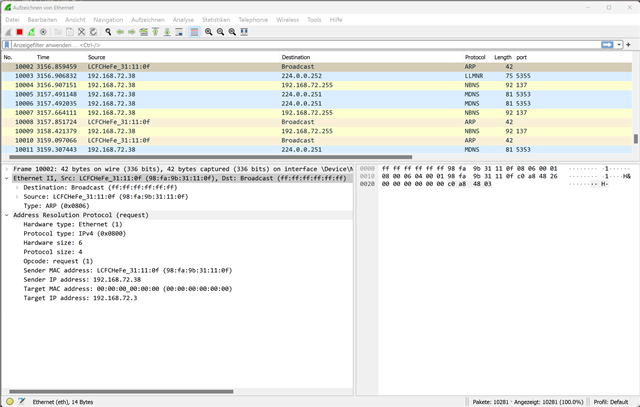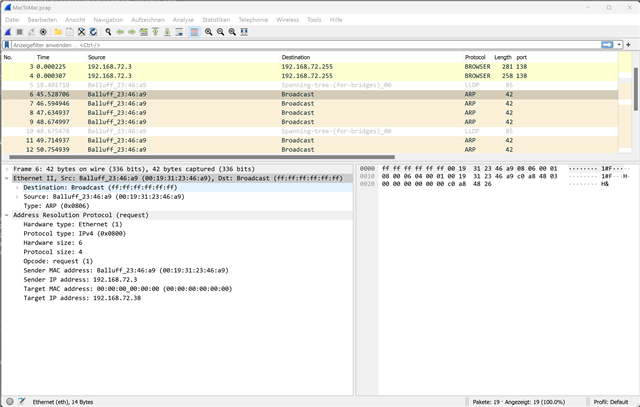Part Number: AM2434
Other Parts Discussed in Thread: DP83869
I have been working with the AM2434 CPU in conjunction with the "AM243x MCU+ SDK 08.06.00" for my networking project. Specifically, I am using the "Enet Layer 2 CPSW SWITCH Example" from the SDK. In my setup, I have connected cpsw port 1 as a MAC to MAC connection, and cpsw port 2 is connected via the PHY dp83869.
While monitoring the network traffic using Wireshark, I have noticed that only ARP broadcast packets are being forwarded. I would like to understand the reason behind this behavior and if there is any configuration or limitation that might be causing it.
I have verified that the CPSW_CUTTHRU feature is enabled in the SDK test example. However, it seems that only ARP broadcast packets are being forwarded, and other types of packets are not being processed.
All connections in my setup are Ethernet Gigabit connections.
Considering this situation, I would like to inquire whether packet manipulation is necessary in the TX thread to ensure the forwarding of all packet types. Is there any specific logic or code that needs to be implemented within the TX thread to handle and forward packets other than ARP broadcasts?
Specifically, I would like to know if it is feasible to configure the CPSW to broadcast all incoming packets to all ports, similar to the behavior of a hub. This means that any packet received on one port would be replicated and forwarded to all other ports, ensuring that all devices connected to the CPSW receive a copy of the packet.
Is there any additional configuration or setting that needs to be considered to ensure the forwarding of all packet types? Are there any limitations with the AM2434 CPU or the specific SDK version I am using that could be causing this behavior?
Thank you in advance for your assistance and expertise.
Best regards, Bernhard



